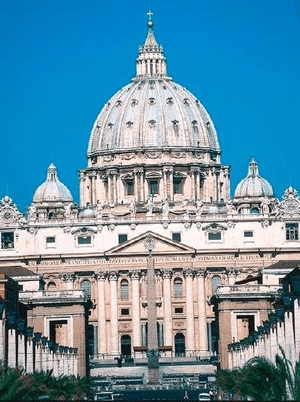
 T IS GOOD to be back on the blog after two weeks of silence. Some of you might know that this past Holy Week was pretty holy and crazy for me because it was my first one as a full-time music director. I have been serving in other area (not music) for the past few Holy Weeks. The Triduum this year was very fruitful and prayerful. As a musician, singing is such a natural way for me to pray. Being able to sing the pieces I picked based on beautiful and rich texts from the Triduum Liturgies deepened my prayer a lot!
T IS GOOD to be back on the blog after two weeks of silence. Some of you might know that this past Holy Week was pretty holy and crazy for me because it was my first one as a full-time music director. I have been serving in other area (not music) for the past few Holy Weeks. The Triduum this year was very fruitful and prayerful. As a musician, singing is such a natural way for me to pray. Being able to sing the pieces I picked based on beautiful and rich texts from the Triduum Liturgies deepened my prayer a lot!
Here is my little reflection on Holy Week. In many documents on Sacred Music, we see that the Church mentioned, over and over again, that universality being one of the three characteristics of Liturgical Music. I just want to share two personal experience of the universality of Sacred Music.
The first experience happened four years ago at World Youth Day 2011. I went to the World Youth Day in Madrid, Spain, in 2011 with a group from home. We were on the street attending the opening ceremony of WYD with thousands of youth from around the whole world. It was a hot summer day and it was really crowded. The unforgettable part was the end of the welcoming ceremony when the Gregorian Salve Regina was sung. Everyone on the streets were united by this chant and were praying in one voice. Chanting with all the youth and our beloved Pope Benedict was a very moving experience for me. That was the first time I experience the universality of Gregorian Chant.
The second experience happened this past weekend during the Triduum and is still happening. My parish is a very diverse parish and we have people with many different cultural backgrounds. Prayers of the Faithful were read in seven different languages on Holy Thursday and there are few music groups that provide different styles of music regularly on Sundays. During Holy Week, my choirs did a wonderful job with the music. In the four days, we chanted all the Propers of the Liturgies and sang more than ten motets. At a diverse parish like mine, Holy Week is the one time a year that everyone attends the same Liturgies and music is sung by the “one choir”. One of my concerns before Holy Week was whether people would understand and appreciate the traditional Sacred Music. Well, it turned out really well and I have been hearing a lot of positive comments from parishioners with different cultural backgrounds.
Both of these experiences show the reason, importance and the application of the universality of Sacred Music. The universality of Sacred Music allows everyone on earth to sing and pray together. And when the music is universal, everyone can appreciate it.
